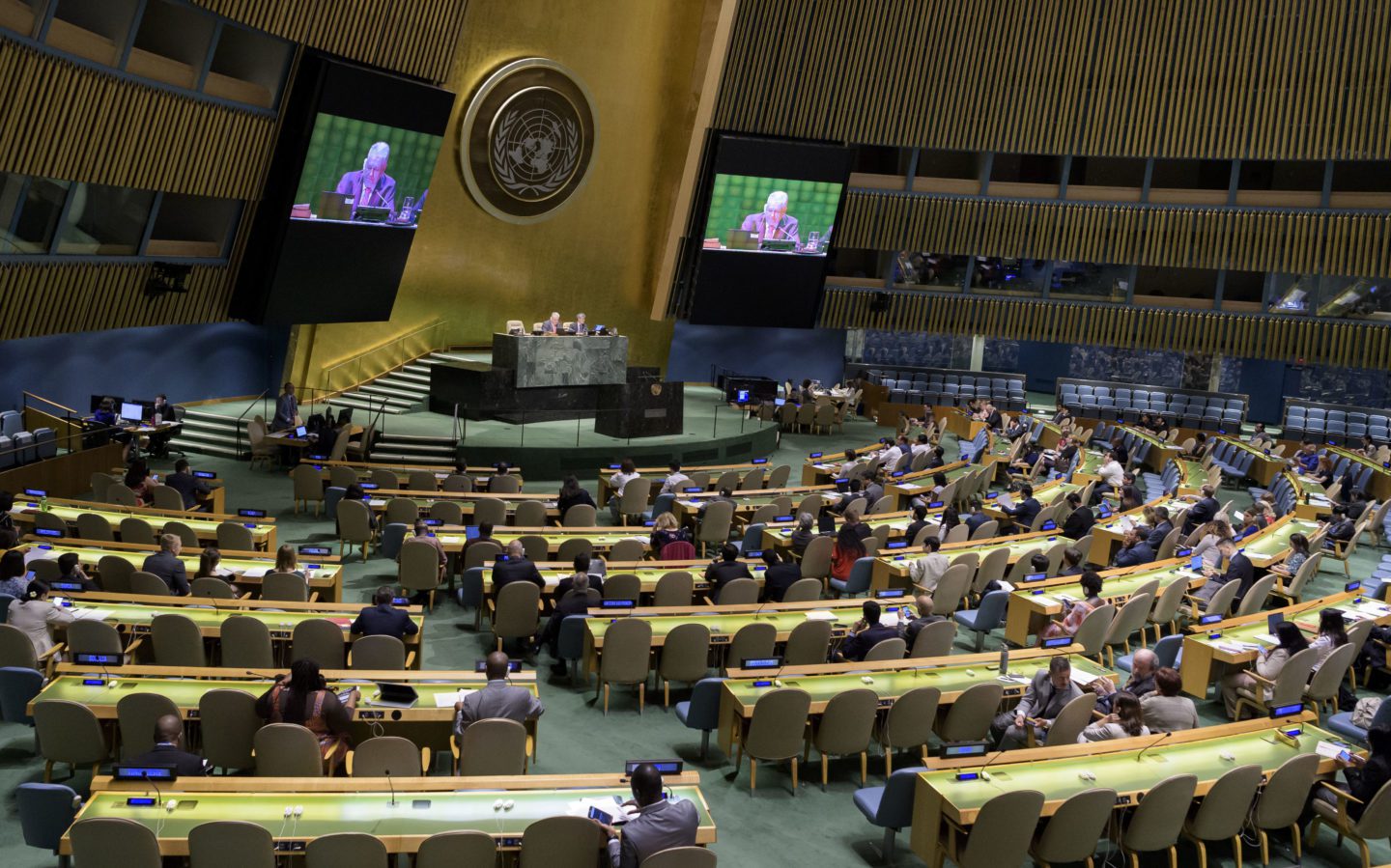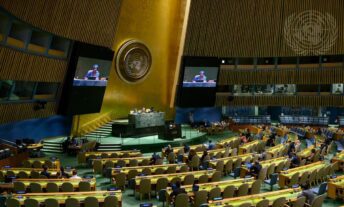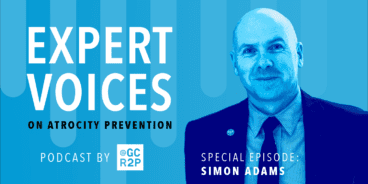Statement by Dr. Simon Adams on Behalf of the Global Centre for the Responsibility to Protect at the 2017 UN General Assembly Informal Interactive Dialogue on the Responsibility to Protect
Mr. President, I would like to thank you for organizing this informal interactive dialogue on the ninth report of the UN Secretary-General on the Responsibility to Protect. I want to thank Secretary-General António Guterres for his enduring commitment to this important principle and for its integration into his broader prevention agenda.
I would also like to thank the distinguished panelists and acknowledge Special Adviser Adama Dieng and Special Adviser Ivan Šimonović for their tireless efforts.
Mr. President, the interventions made here today by a diverse array of member states reflects the consensus around the Responsibility to Protect (R2P) that has been built throughout the past 12 years. This consensus exists despite setbacks, disappointments and disagreements. I am particularly encouraged by the statement delivered on behalf of the 50 members of the Group of Friends of R2P. The Global Centre is proud to act as Secretariat for the Group of Friends and would like to thank the co-Chairs, the Kingdom of Netherlands and the Republic of Rwanda, for their leadership.
The protection of vulnerable populations from mass atrocity crimes is both a national and global responsibility. As we meet today, villages are burning in Myanmar and tens of thousands of Rohingya refugees have fled to Bangladesh. As we speak, survivors of the genocide by the so-called Islamic State against the Yazidi minority in Iraq are still waiting for justice. In Yemen and Syria indiscriminate attacks on schools and hospitals continue. In a range of countries and conflicts, both governments and non-state armed groups are waging war against vulnerable civilians.
Mr. President, the inability of the international community to consistently uphold its responsibility to protect in conflicts across the globe has contributed to a historic weakening of all the norms that bind and safeguard humanity. Sometimes it appears as if the international system still prefers solemn hand wringing in the aftermath of mass atrocities to being accused of acting prematurely to avert them.
But, Mr. President, as emphasized within the Secretary-General’s report, there are a number of concrete steps that member states and the UN system can take to bolster preventive efforts, including appointing an R2P Focal Point and supporting initiatives that enhance accountability, such as the ACT Code of Conduct regarding Security Council action against genocide, crimes against humanity and war crimes.
We also encourage all 193 member states to support the efforts led by Ghana and Australia to move R2P onto the formal agenda of the UN General Assembly. Doing so would create an expanded space for substantive conversation on how to better prevent mass atrocity crimes.
Mr. President, it is worth reiterating that this dialogue is occurring at a time when over 65 million people are displaced by conflict, persecution and atrocities. We believe that the United Nations, and its Secretary-General, can play a unique role in shifting the global political equilibrium away from crisis response and towards conflict prevention.
It is our hope that the Secretary-General will issue a system-wide memorandum that clearly affirms that the prevention of mass atrocity crimes is a core priority and key operational function of the UN and all its staff. He should also reinforce the strategic bridge between Geneva, New York and UN field operations, especially concerning early warning of potential mass atrocities and other grave violations of human rights. The Secretary-General should also use his powers under article 99 of the UN Charter to bring to the attention of the Security Council any situation in which populations are at risk of mass atrocity crimes.
Mr. President, the Responsibility to Protect is a political commitment made by member states. But it is also a promise to those people for whom crimes against humanity, ethnic cleansing, war crimes, or genocide are not abstract words, but real acts that pose an existential threat to them, to their loved ones, and to their communities. Despite mistakes and failings, R2P has helped save lives in Côte d’Ivoire, Central African Republic and elsewhere. It is incumbent upon the states gathered here to honor that promise, to uphold that principle, and to take proximate preventive action, wherever and whenever these crimes may be threatened.
I thank you, Mr. President.
Read Next
Related Content

Summary of the 2023 UN General Assembly Plenary Meeting on the Responsibility to Protect

Summary of the 2022 UN General Assembly Plenary Meeting on the Responsibility to Protect
